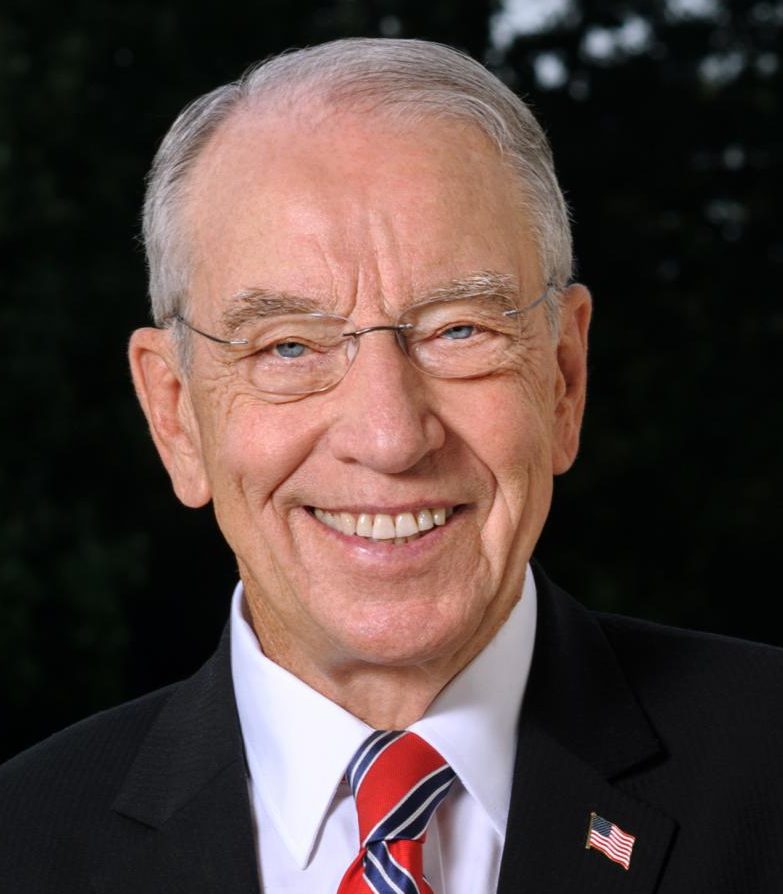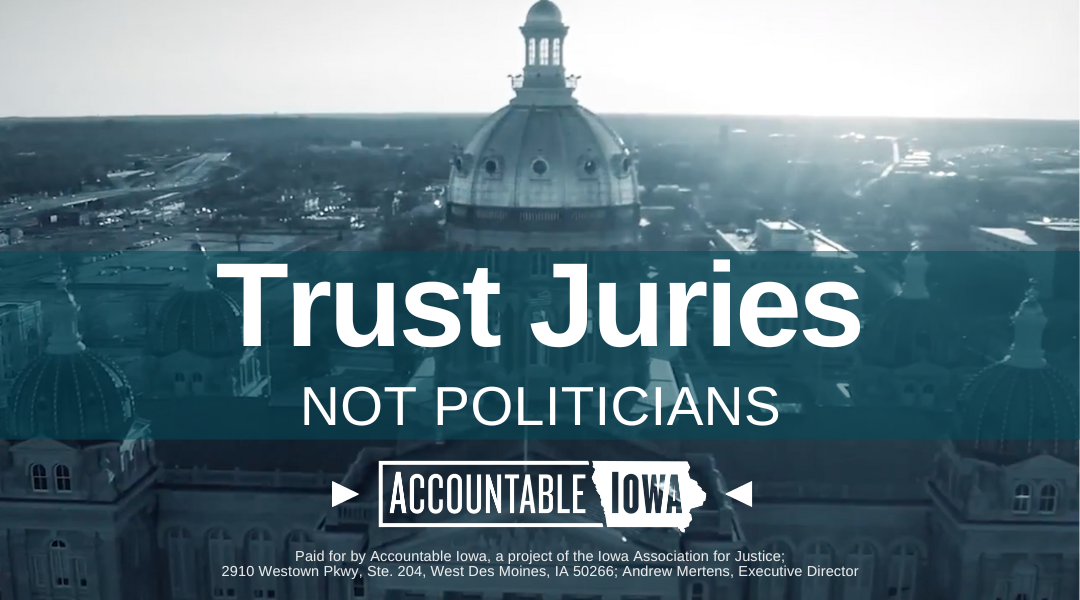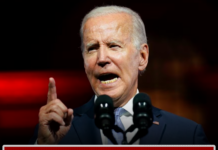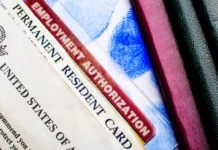U.S. Sen. Chuck Grassley (R-Iowa), a senior member and former chairman of the Senate Judiciary Committee, is calling on the Justice Department to grant access to newly disclosed material related to the FBI’s handling of its case against Lt. Gen. Michael Flynn. The high-profile case has prompted questions about the investigative and legal tactics used against Flynn.
“Simply stated, after years of rampant speculation and publicly reported inconsistencies regarding how the FBI handled the case, it’s time for the public to know the full set of facts relating to Lt. Gen. Flynn, including any and all government misconduct,” Grassley wrote in a letter requesting DOJ to unseal the records. At a minimum, Grassley urged that it be made available for congressional oversight.
In December 2018, Flynn pleaded guilty to lying to investigators during a January 2017 interview regarding his contacts with Russians, however Flynn has since claimed that he was pressured into pleading guilty and was poorly represented by his former legal team. The new material, which Flynn’s attorneys have characterized as “exculpatory,” was relayed by the U.S. Attorney’s Office for the Eastern District of Missouri, which was recently tasked with reviewing DOJ’s and FBI’s handling of the case. It’s currently shielded from disclosure by a protective order.
Grassley first sought details surrounding Flynn’s 2016 contacts with the Russian ambassador in a joint letter with Sen Dianne Feinstein (D-Calif.) in February of 2017. Grassley, then Chairman of the Judiciary Committee, delayed confirmation of Deputy Attorney General nominee Rod Rosenstein in order to secure the requested briefing, which he and Feinstein received on March 15, 2017. In that briefing, then-FBI Director James Comey told the senators that he saw no evidence that Flynn had lied to investigators, a point he later reiterated to the House Intelligence Committee. Comey also testified that he did not believe DOJ would charge Flynn.
In August of that year, Grassley called on the Defense Intelligence Agency to declassify information he had reviewed because it “would be in the public interest, and is in the interest of fairness to Lt. General Flynn.”
In a series of exchanges in 2018, Grassley urged DOJ to produce a transcript of Flynn’s phone call with the Russian ambassador and records summarizing the FBI’s interview with Flynn, which was conducted, in-part, by Peter Strzok and occurred without a lawyer present. Comey later bragged that he and then-FBI Deputy Director Andrew McCabe ignored the FBI’s interview protocol for high-level White House officials. Strzok was eventually removed from the investigation after his text messages revealed biases against the Trump presidency. The department rejected the request on the grounds that the public record in the Flynn case was sufficient. Later, Deputy Attorney General Rosenstein met with Grassley and suggested that Congress should be satisfied with the facts described in the plea agreement.
The newly disclosed material suggests that the FBI and DOJ may have possessed additional so-called “Brady material” that undermines its case against Flynn – material that should have been made available to his legal team prior to his plea deal. Text of Grassley’s request for transparency and a timeline of prior correspondence follow:
April 27, 2020
VIA ELECTRONIC TRANSMISSION
The Honorable William Barr
Attorney General
Department of Justice
Dear Attorney General Barr:
On February 15, 2017, as Chairman of the Judiciary Committee, I wrote to the Department with Ranking Member Feinstein, requesting a copy of the call transcript between Lt. Gen. Michael Flynn and the Russian ambassador and the FBI report summarizing the intercepted call. Instead of providing the requested records, and as a result of my questions and concerns relating to the Flynn case, I received a briefing from then-Director Comey on March 15, 2017. In that briefing, Director Comey stated that the FBI agents that interviewed Lt. Gen. Flynn, “saw nothing that led them to believe [he was] lying” and he led us to believe that the Department was unlikely to prosecute Flynn for false statements. Later, during Comey’s book tour, he denied any memory of those comments.
On May 11, 2018, I requested categories of documents relating to the Flynn case from Deputy Attorney General Rosenstein, including call transcripts, 302s, and other potentially exculpatory evidence and requested to interview a fact witness to the case, Special Agent Pientka.
On May 29, 2018, the Department responded and declined to produce the requested records and arrange for Special Agent Pientka to be interviewed. The Department also admitted in that letter that it had yet to provide all exculpatory evidence to Flynn.
On June 6, 2018, I wrote a follow-up letter to Deputy Attorney General Rosenstein and noted that if the facts of the case are inconsistent with the plea agreement, that would be an extraordinarily concerning finding and one that would warrant continued congressional oversight. I further noted in that letter that the United States Congress has a separate, independent, constitutional interest in all information, including exculpatory information, relating to the Flynn case. After that June 2018 letter, my staff and I met with Deputy Attorney General Rosenstein where he resisted congressional oversight and suggested that Congress should be satisfied with the facts described in the plea agreement. It is certainly in the interest of Congress and the American people to know whether the FBI and the Department withheld facts in the course of their investigation and prosecution of an American citizen that are materially inconsistent with his plea.
This is no ordinary criminal case. One of the agents who interviewed Lt. Gen. Flynn, Peter Strzok, was later removed from the Russia investigation after his texts demonstrating animus and bias toward the President were discovered. Additionally, former Director McCabe was fired for lack of candor regarding a leak to the Wall Street Journal, and Lt. Gen. Flynn was an adverse witness in a pending sexual discrimination case against Mr. McCabe at the time Mr. McCabe was supervising an inquiry targeting Lt. Gen. Flynn.[1] Further, the Flynn case was at the center of a political firestorm over the President’s alleged statements about it to Director Comey. Moreover, Flynn himself “had told both White House Counsel and the Chief of Staff at least twice that the FBI agents had told him he would not be charged,”[2] which is consistent with what Director Comey told me and my staff. The FBI’s conduct is ripe for congressional oversight.
According to an April 24, 2020, letter from the interim U.S. Attorney for the District of Columbia, Timothy Shea, the Attorney General directed that the U.S. Attorney for the Eastern District of Missouri conduct an independent review of the Flynn case. As a result of this review, the EDMO has identified and produced new documents to Flynn’s legal team, which they have publicly characterized as exculpatory evidence.
Simply stated, after years of rampant speculation and publicly reported inconsistencies regarding how the FBI handled the case, it’s time for the public to know the full set of facts relating to Lt. Gen. Flynn, including any and all government misconduct. In light of the extraordinary public and congressional interest in this case, I request that you work with Flynn’s attorneys to unseal these new records provided to them so that the public can access the material. In the alternative, I request that you amend the protective order so that Congress can review the information in light of its constitutional oversight prerogatives.
Sincerely,
Charles E. Grassley
Chairman
Committee on Finance
[1] See Letter from Chairman Grassley to Inspector General Horowitz (June 29, 2017),
https://www.judiciary.senate.gov/imo/media/doc/2017-06-
29%20CEG%20to%20DOJ%20IG%20(McCabe%20Conflicts).pdf
[2] The Trump Lawyer’s Confidential Memo to Mueller, Explained, THE NEW YORK TIMES (June 2, 2018) (quoting
Letter from John M. Dowd and Jay A. Sekulow, Counsel to the President to Robert S. Mueller, Special Counsel,
U.S. Dep’t of Justice (Jan. 29, 2018)), https://www.nytimes.com/interactive/2018/06/02/us/politics/trump-legal- documents.html#footnote-0-26; Byron York, Trump Lawyers Reveal Previously Unknown Evidence in Michael
Flynn Case, THE WASHINGTON EXAMINER (June 3, 2018), https://www.washingtonexaminer.com/news/newlyleaked-
memo-previously-unknown-evidence-michael-flynn-case.
















